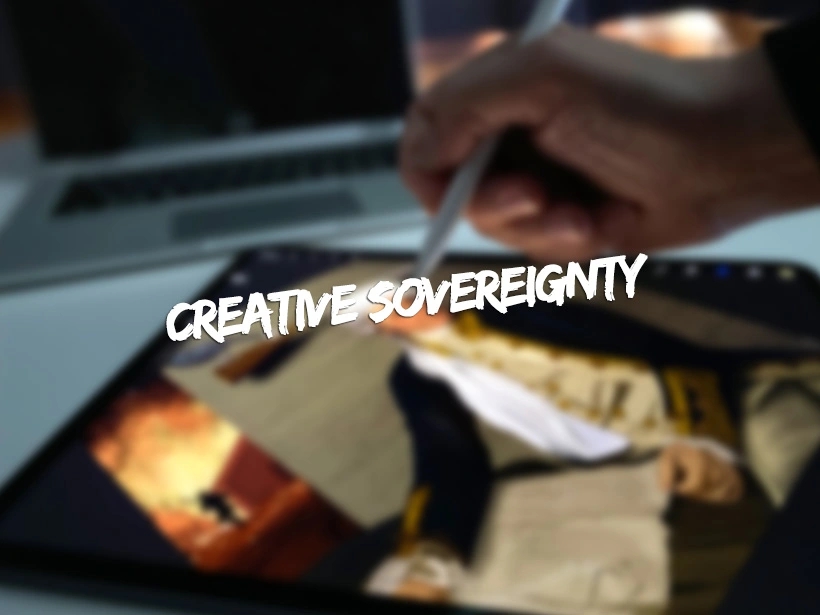Creative Sovereignty

Typically you don’t build your house on someone else’s land. Sure, with the right arrangements in place you can do it, but, it requires high levels of trust and would likely have a massive impact on value and huge implications for future sales potential.
Building on someone else’s property is exactly what we do on the internet everyday, in return for distribution we willingly hand over ownership of our content and in the process we become the product.
If you live in crypto you call this model Web2. If you’re a crypto native you’re at the forefront of the transition from Web2 to Web3. If you’re not a crypto native you’re probably asking “WTF is Web3?!”.
In Web3, you, the creator, own your content outright. You can lend it, lease it, or give permission to other users and platforms to use it on your behalf but you still own it.
Web3 finally enables true authenticity
You can also sell or gift your content to someone else, basically a transfer of ownership and they might sell it or gift it too. There could be thousands of transfers or transactions associated with your original content, this history is permanently stored and accessible to anyone. As is the record of you being the creator. Web3 finally enables true authenticity.
More Than a Blue Checkmark
Not that I have one, but I don’t identify as a blue checkmark. This is how platforms like Twitter and Instagram verify that a profile is authentic. Of course, they control that, not the user. I have no idea what the rules are around assigning blue checkmarks, or what criteria must be met to be assigned one. I’m guessing it has a lot to do with popularity and follower counts.
I am me and you are you, why don’t we have a blue checkmark? Isn’t the whole point to verify who you are? If you do have a blue checkmark, what happens if a platform changes its mind, or updates their criteria? Are you no longer you?
They also have the power to remove you as a user. In Web2 the platform decides who you are and if you can access their platform. You have no control over that.
Blockchains and the Ethereum network cannot remove you or your history of existence.
Sovereignty Through Smart Contracts
An NFT proves ownership. With your own your smart contract you essentially own an NFT factory and warehouse. Where platforms like Twitter, Instagram and Facebook have the power to remove you and your content from their property, you own the keys to your smart contract and all the content associated with it, no one can move, alter or transfer your NFTs without your consent.
…we now permit, lease, lend and revoke access to our content
This inverts the existing relationship between content and platform. Where traditionally content was built on top of platforms, platforms are being built on top of the content. Where we used to gift our content for the reward of distribution, we now permit, lease, lend and revoke access to our content. We are now the true and verifiable owners of our creations.
Digital ownership in Web3 is much more authentic than anything we’ve had to date and represents a giant leap forward for creative sovereignty. Are we there yet? Not even close, but, the path has been laid and the balance of power is shifting.